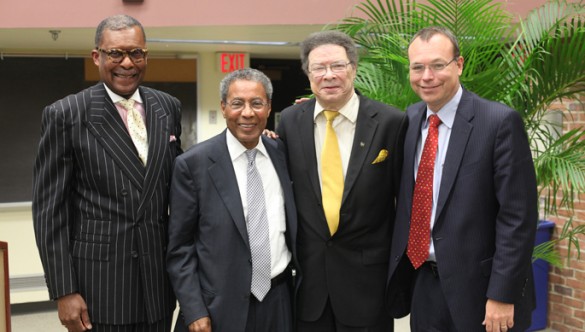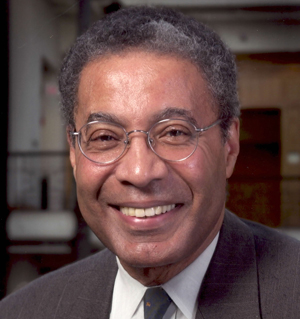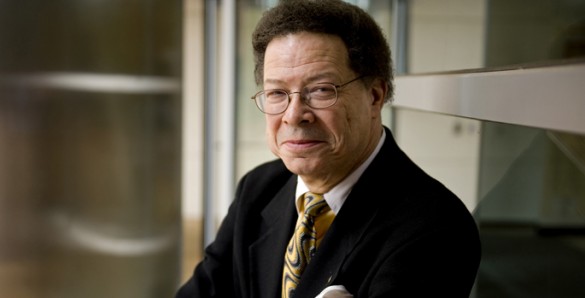
Alvin Poussaint, M.D., professor of Psychiatry and faculty associate dean for Student Affairs at Harvard Medical School, said the appearance of more diversity in medical schools is evidence of progress, but he cautions that the issue is more complicated than ever.
Poussaint, who delivered the 11th annual Levi Watkins Jr. Lecture last week, told the audience in 208 Light Hall that increases in the proportion of under-represented minorities attending medical schools in the United States have stalled in the last decade.
“We reached our peak in 1994. Now the question of how students are listed by ethnicity has become more complex. The number of students classified as black who are foreign born or are recent immigrants has increased, while the number of black males born in the United States applying to medical schools has not progressed,” said Poussaint.
Poussaint said international diversity is important, but should not be allowed to erode at the intent of racial and socioeconomic diversity efforts.
He showed statistics indicating a net loss of native-born Americans of African, American Indian, and Latino decent, while only the number of black women applying to medical schools has increased in the last decade. Poussaint said when compared to the difficult and sometimes dangerous Civil Rights era, underrepresented minorities clearly have more opportunity today, but by no means have the goals of diversity been reached.
“The statistics indicate continued systemic problems in the United States, and it indicates a continuation of institutional problems in medicine and medical education,” Poussaint said.
Poussaint is a broadly published and widely recognized expert on race relations. He served as chief resident in Psychiatry at UCLA in 1964-65 and served as Southern Field Director of the Medical Committee for Human Rights in Jackson, Miss., to provide medical care to Civil Rights workers. He also served as a consultant on “The Cosby Show,” and co-authored the book “Come on People” with Bill Cosby.
A number of awards were presented at the lecture. The Faculty Award, presented to a faculty member making outstanding contributions in fostering opportunities for underrepresented minorities, went to Walter Clair, M.D., assistant professor of Medicine and a Medical School College Mentor.
Ashira Blazer, M.D., was recognized with the House Officer Award and Carla Valenzuela and Celestial Jones-Paris received the School of Medicine and Grad Student Awards, respectively, for their contributions in fostering diversity.
The lecture honors Levi Watkins Jr., M.D., a prominent cardiac surgeon and the first African-American student to be admitted to and graduate from VUSM.















